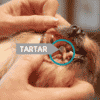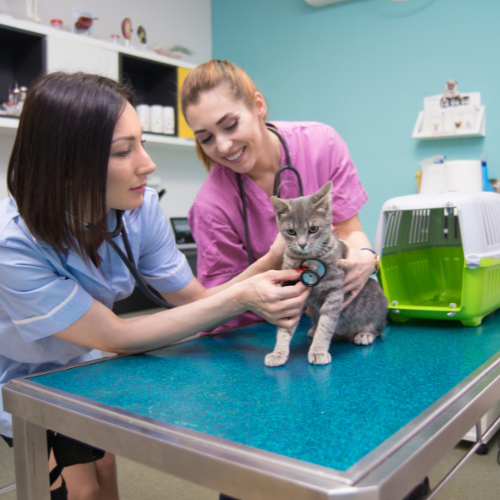Sunlight is a basic need for all living things. Vitamin D, essential to maintaining healthy bones in animals, may be obtained most effectively by exposure to sunlight. But does that also hold for your pet? Do rabbits need to be outside in the sun? How frequently do they require sun?
Sunlight is essential for the maintenance of rabbits’ health. Vitamin D may be found in abundance in this food item. Rabbits might develop brittle bones and teeth issues if they do not get enough vitamin D.

In this article, we’ll talk more about rabbits and the sun.
Vitamin D and Sunlight
Calcium is essential for the maintenance of healthy bones as well as teeth in all animals. Rabbits get enough calcium from the food they eat. However, if the calcium is taken into the bloodstream, it will be beneficial.
Vitamin D is absorbed into the rabbit’s body when it is exposed to sunlight. It has been observed that rabbits with access to sunlight once a day tend to be more powerful and healthy overall. Your rabbit may get sick and weak if it does not get enough vitamin D. Therefore, exposure to sunlight is essential for rabbits.
Do Pet Rabbits Require Daily Exposure to the Sun?
Wild rabbits live out in the sun, mud, and grass, where they can be close to nature and get all the food they need. It should be no surprise that rabbits kept inside lack several essential nutrients. It’s your responsibility to ensure your indoor rabbit has access to natural light and air.
Rabbits kept as pets require exposure to sunshine. Because they don’t get as much sun as wild rabbits do, they must have it. Sunlight gives rabbits vitamin D to strengthen bones and teeth.
Why Do Rabbits Require Direct Sunlight?
Sunlight is essential for rabbits as it allows their body to manufacture vitamin D, which the animal cannot do without. In addition, sunlight is a source of light energy and warming heat, both beneficial to the body’s ability to regulate its temperature and other functions.
It is beneficial to your bunnies’ health if you expose them to just a little sunshine daily. However, their bodies are far more efficient in producing this essential vitamin when exposed to direct sunlight. If you want your rabbit to stay healthy, provide it with vitamin D3-fortified hay and pellets.
The Advantages That Sunlight Offers to Rabbits
Sunlight has several benefits for rabbits.

Heat Distribution
Keeping your rabbit out in the sun in colder locations is an essential part of rabbit care since rabbits can experience hypothermia, much like humans. In the wild, rabbits will, of their own will, bask in the early morning sun, particularly during the colder months. Because they are confined in cages, they cannot do this very often.
Drying Coats
Due to the thick nature of their hair, which takes a long time to dry, rabbits are susceptible to developing hypothermia when it rains on them. Your rabbit’s fur can be more manageable if you expose it to the light daily.
Bone and Cell Growth Stimulation
Because your rabbit has a fragile spinal column, it is necessary to get an increased amount of vitamin D to strengthen its skeletal framework. The bones of rabbits are extremely fragile and easily broken.
Your rabbit’s skeleton will develop more effectively if it is moderately exposed to the sun. Vitamin D is also necessary for maintaining a strong immune system, which assists your rabbit in avoiding becoming sick and being healthy overall.
Stronger Teeth
The ability of bunnies to chew depends significantly on their teeth; yet, even though rabbit teeth are continually developing, rabbits lack the vitamin D necessary to develop teeth that are strong and healthy. Your rabbit would quickly perish if it lacked teeth. Your rabbit needs enough time in the sun to develop a strong set of teeth.
Several Dangers of the Sun for Rabbits
The sun’s rays are essential for rabbits’ health, but too much exposure to its rays might be harmful to them. When kept in a setting too warm for them, rabbits risk quickly overheating and dying.
Never put your rabbit’s cage in a location that gets direct sunlight; doing so might cause your rabbit to overheat. Due to their thick hair, it is difficult for bunnies to self-regulate their body temperature in heated situations.
Some rabbits are photosensitive, which is more likely to be the case if their noses and eyelids are highly pink. Burning can occur on their skin if exposed to direct sunlight for an extended time. When it comes to sun exposure, you should exercise caution if your rabbit has a highly pink coat or is of the albino kind.
How to Give Rabbits More Sunlight?
Most of us don’t have access to an outdoor space to set up our play areas; therefore, we must keep them inside. So, what should one do instead?
Here are the steps to follow:
Take Your Rabbit on Walks
Your bunny needs to run around, and you should also take advantage of this opportunity to expose them to sunlight. Put on your rabbit’s leash, and then take it to the neighborhood park, where it can run about, eat some grass, and absorb some vitamin D while you enjoy some fresh air and sunshine.
You can offer your bunny harness training if you follow these steps. Bring your bunnies outside and get them used to walk around. Find a peaceful spot for them, and give them thirty minutes’ worth of grazing time per day.
Use an Open Window
In this case, an open window can help. It would be best to feed your rabbit in a room with a window to get some natural light. They should be taught to consume food only in the designated area.
A Secure Outdoor Run
A secure outdoor run is another great option. If you want your rabbits to enjoy the sunshine, you should enclose your yard or any other open space and leave them there.
Buy a Uv Bulb
This might sound insane, but it can be beneficial in some situations. This one is particularly helpful in a wet or wintry season and makes a big difference. You can adjust the temperature to one that is appropriate for your rabbit’s body, as well as the UV bulb.
Precautions You Must Follow
Since rabbits are constantly vulnerable to predators in the wild, petting them from a young age makes them weak and unfamiliar with the outdoors. Before exposing rabbits to sunlight, you need to observe the following safety precautions:
- Always Keep a Close Check on Them: Whenever they are outside, you should always keep a close eye on them.
- Examine the Skin and Lower Body Parts: Examine the rabbit’s skin and lower body parts for parasites. Even while their fur protects their skin, they are nevertheless susceptible to skin diseases brought on by parasites, which can ultimately lead to their death.
- Alternate Temperature: Make sure your rabbits are not in a location where it is too hot and the sun is shining directly on them. Find a spot where your rabbit can go away from the sunshine when it is done or fatigued, and make sure that it has the option to do so.
- Make Use Of A Harness: Use a harness if your rabbits are new to you and if you and they are not yet very comfortable with one another. It may take a while for a rabbit and its owner to develop a strong attachment. Therefore, you should use a harness to prevent your rabbits from being afraid of you and fleeing the area when they are outside. Should it occur, there is a possibility that you will lose some of them.

- Do Rabbits Like Rain? : Fun Facts About Rabbit Behavior in the Rain
- Do Rabbits Dig Holes to Have Babies?
- What Do Rabbits Like To Sleep On?
How Many Hours of Sunlight Should a Rabbit Get Each Day?
Vitamin D is absorbed into the rabbit’s body when it is exposed to sunlight. It has been observed that rabbits exposed to sunlight daily have a stronger immune system and enjoy better overall health.
Your rabbit needs at least 30 minutes of sunshine every day. If you want your rabbit to get the most vitamin D out of its time in the sun, you should take it out in the morning as well as evening when the sun is milder.
The rabbit can suffer heatstroke if left unattended in the sunlight for an extended period. Dehydration can also be caused by exposing them to the sun for more than half an hour at a time.
If your rabbit suffers from heat stroke, it can pass out, become unresponsive, or demonstrate a reduction in its respiration rate and blood pressure. If you observe any of these signs in your rabbit, you should move them to an excellent, shaded spot as soon as possible and offer them additional water to drink.
You should try to cool them down, but you should not immerse them in water or splash water at them since this might cause rabbits to experience a shock. If the rabbit does not begin to feel better soon, it is best to take it to the veterinarian as soon as possible.

Veterinarian (DVM, MS) Content Writer, Blogger, and WordPress Developer. Working as a pet/animal/bird/fish/reptile/wildlife writer for the past 7 years on many renowned platforms.




